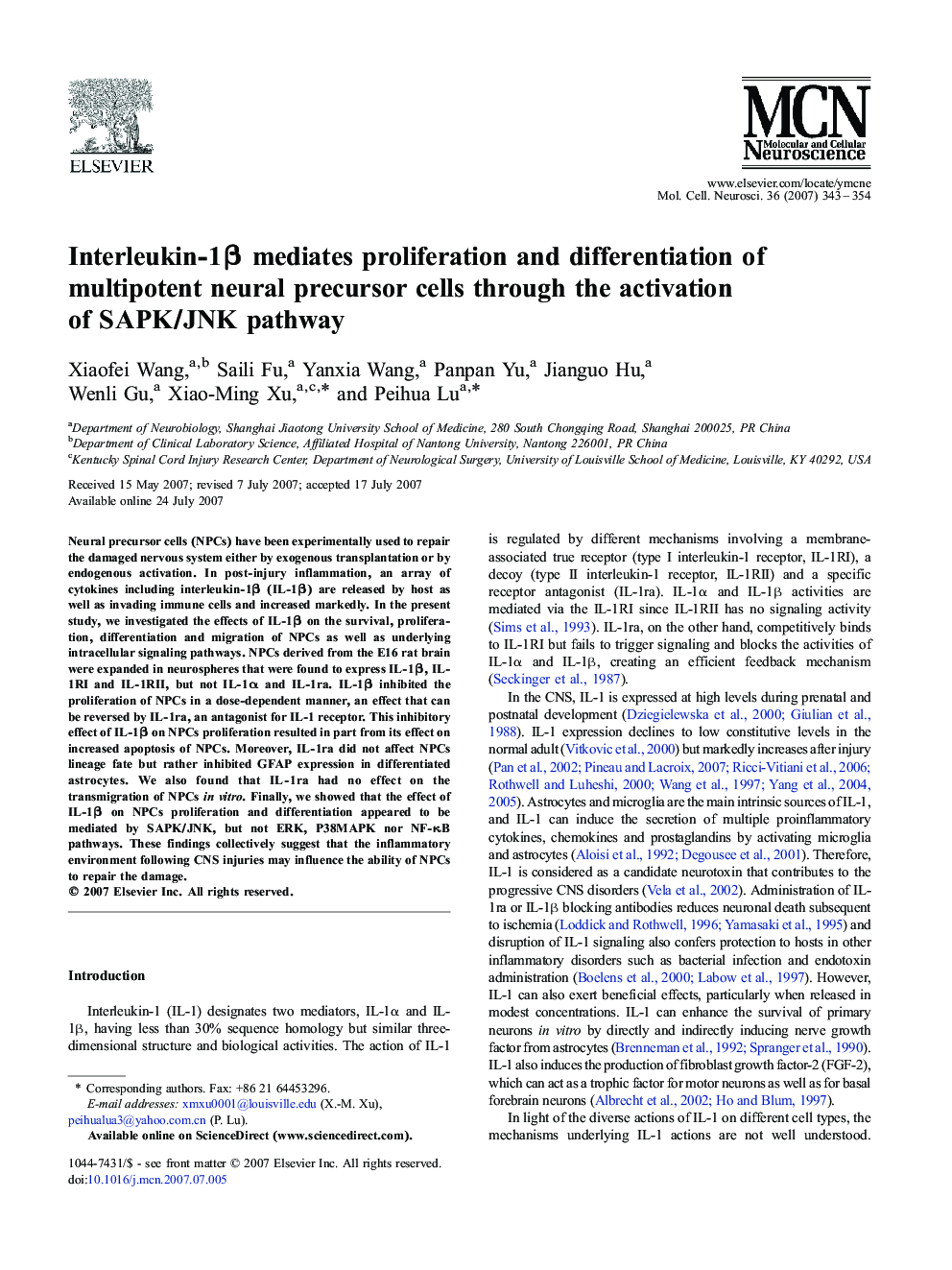| Article ID | Journal | Published Year | Pages | File Type |
|---|---|---|---|---|
| 2199262 | Molecular and Cellular Neuroscience | 2007 | 12 Pages |
Neural precursor cells (NPCs) have been experimentally used to repair the damaged nervous system either by exogenous transplantation or by endogenous activation. In post-injury inflammation, an array of cytokines including interleukin-1β (IL-1β) are released by host as well as invading immune cells and increased markedly. In the present study, we investigated the effects of IL-1β on the survival, proliferation, differentiation and migration of NPCs as well as underlying intracellular signaling pathways. NPCs derived from the E16 rat brain were expanded in neurospheres that were found to express IL-1β, IL-1RI and IL-1RII, but not IL-1α and IL-1ra. IL-1β inhibited the proliferation of NPCs in a dose-dependent manner, an effect that can be reversed by IL-1ra, an antagonist for IL-1 receptor. This inhibitory effect of IL-1β on NPCs proliferation resulted in part from its effect on increased apoptosis of NPCs. Moreover, IL-1ra did not affect NPCs lineage fate but rather inhibited GFAP expression in differentiated astrocytes. We also found that IL-1ra had no effect on the transmigration of NPCs in vitro. Finally, we showed that the effect of IL-1β on NPCs proliferation and differentiation appeared to be mediated by SAPK/JNK, but not ERK, P38MAPK nor NF-κB pathways. These findings collectively suggest that the inflammatory environment following CNS injuries may influence the ability of NPCs to repair the damage.
